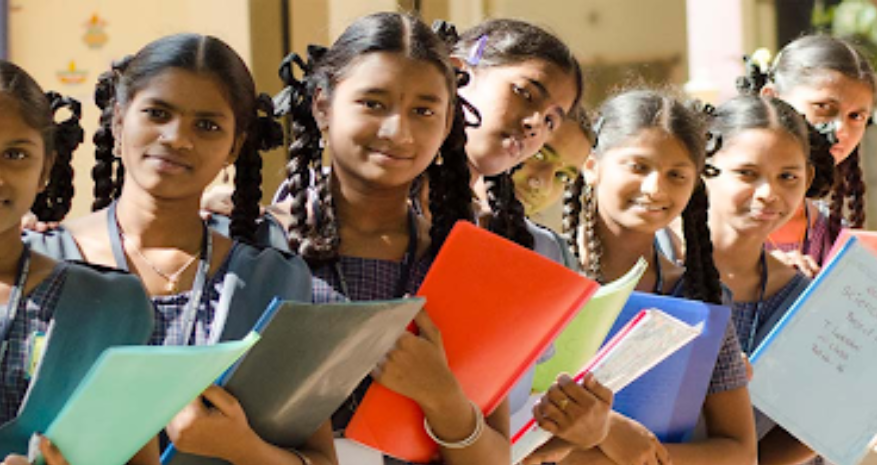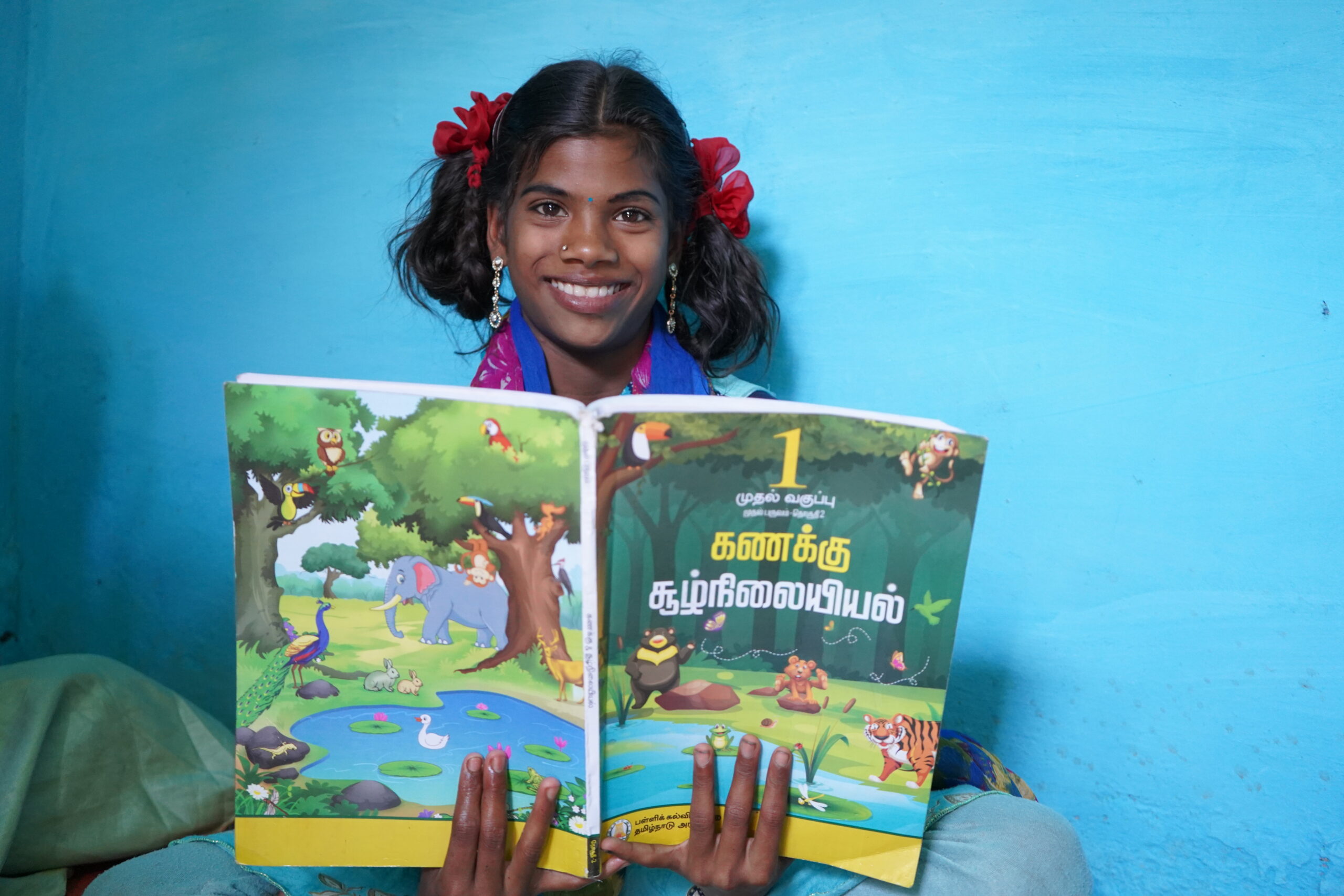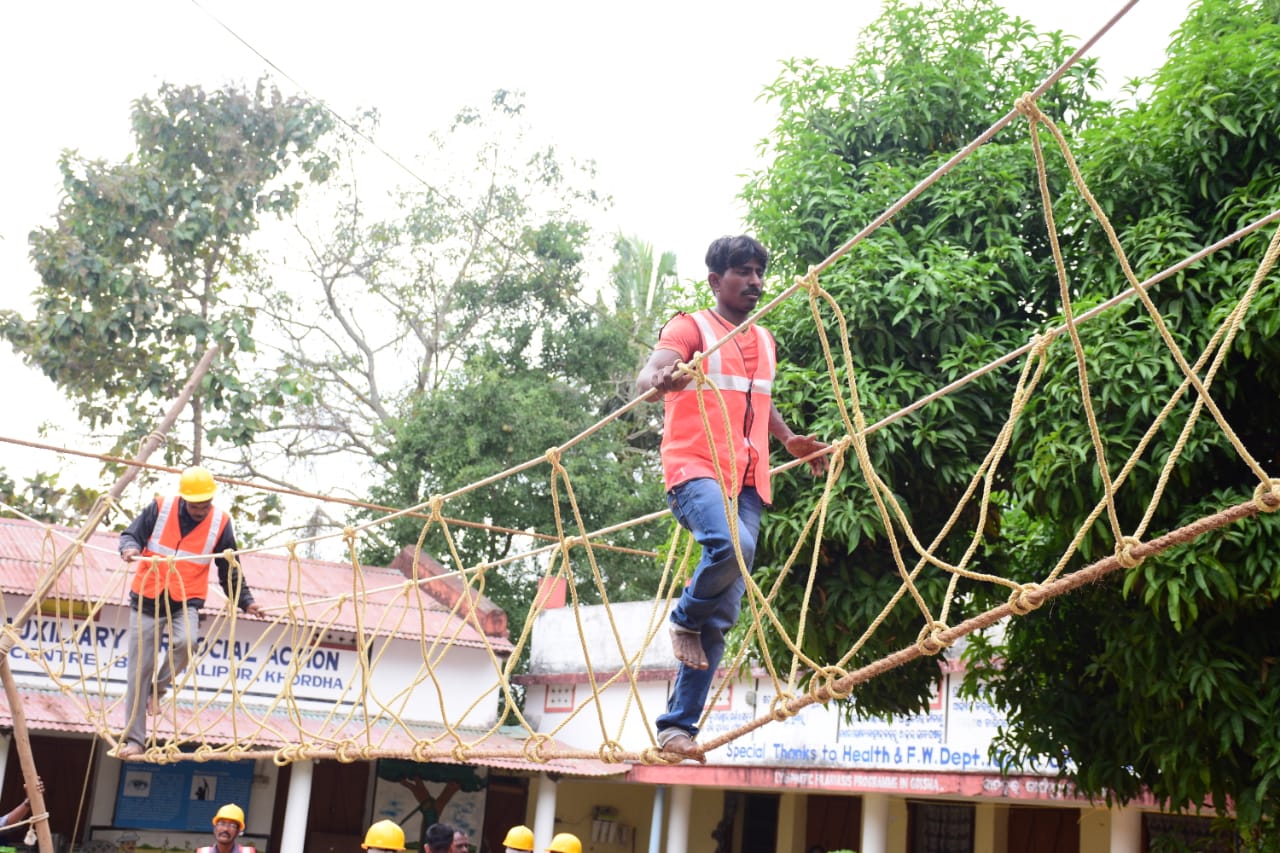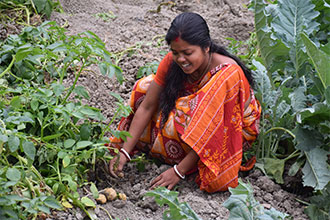CASA BLOGS

Importance to Donate for girl child education india
India has made remarkable progress in various sectors since its independence, yet gender inequality remains a pressing issue. One of the most significant manifestations of gender inequality is the low literacy rate among girls. Despite numerous initiatives by the Indian government, gender disparities in education persist, especially in rural areas. The lack of education for girls in India has been an age-old problem and has resulted in a plethora of social and economic issues. The importance to Donate for girl child education in India cannot be overstated, as it is the foundation for building a more equitable and just society.
Empowerment of Women
Empowering women is one of the most significant reasons for educating girls. Education provides women with the knowledge, skills, and confidence to take control of their lives and make informed decisions. When girls are educated, they become aware of their rights and can demand equal treatment in society. Education also helps girls to break free from the cycle of poverty and reduces the likelihood of early marriage and childbearing.
Improved Economic Outcomes
Investing in girls’ education can have significant economic benefits for families, communities, and the country as a whole. Educated girls are more likely to earn higher wages, which can help lift families out of poverty. Educated women also contribute to the country’s economy by participating in the workforce and paying taxes, which can lead to overall economic growth.
Reduced Infant Mortality Rates
Studies have shown that there is a strong correlation between maternal education and infant mortality rates. Educated mothers are more likely to seek medical attention during pregnancy and childbirth and are more likely to follow recommended health practices for their children. Educated mothers are also better able to recognize and respond to their children’s health needs, resulting in better health outcomes for their children.
Decreased Child Marriage and Early Childbearing
Child marriage and early childbearing are prevalent in many parts of India, particularly in rural areas. Educating girls can help reduce the prevalence of these practices. Educated girls are more likely to delay marriage and childbirth, as they are better able to understand the risks associated with early childbearing. Educated girls are also more likely to have smaller families, which can help reduce the strain on resources.
Improved Health and Sanitation Practices
Educated girls are more likely to understand the importance of health and sanitation practices. They are more likely to practice good hygiene, which can help prevent the spread of diseases. Educated girls are also more likely to understand the importance of safe drinking water and proper sanitation practices, which can help reduce the incidence of water-borne diseases.
Improved Political Participation
Donate to girl child education in India as educated girls are more likely to participate in political activities and to become involved in local and national decision-making. This can lead to a more equitable distribution of resources and opportunities for all members of society. Educated girls are also more likely to be aware of their rights and to demand equal treatment in society.
Challenges to Girl Child Education in India
Despite the importance to donate for girl child education in India, there are still significant challenges to achieving gender parity in education in India. Some of the challenges include:
Poverty: Poverty remains one of the most significant barriers to girls’ education in India. Many families cannot afford to send their children to school, and girls are often the first to be withdrawn from school when financial constraints arise.
Gender Discrimination: Gender discrimination is still prevalent in many parts of India, particularly in rural areas. Girls are often seen as a burden on their families and are expected to prioritize household chores over education.
Early Marriage and Childbearing: Child marriage and early childbearing are still prevalent in many parts of India, particularly in rural areas. Girls who are married early are often forced to drop out of school, and early childbearing can have serious health consequences.
CASA-India is a non-profit organization that is dedicated to improving the lives of disadvantaged children, including girls, in India. CASA-India’s work for girl child education in India is comprehensive and addresses the various challenges that girls face in accessing education. Some of the initiatives undertaken by CASA-India for girl child education are:
Scholarships and Financial Support: CASA-India provides scholarships and financial support to girls from economically disadvantaged backgrounds. This support enables girls to continue their education and helps to prevent dropouts.
Awareness and Advocacy: CASA-India conducts awareness and advocacy campaigns to promote the importance of girl child education. This helps to change the attitudes and perceptions of parents and communities toward girls’ education.
Infrastructure Development: CASA-India works towards improving infrastructure in schools, particularly in rural areas, to make them more girl-friendly. This includes building separate toilets for girls and providing safe and secure transportation facilities.
Teacher Training and Support: CASA-India provides teacher training and support to improve the quality of education in schools. This includes training teachers to provide gender-sensitive education and to identify and address the specific needs of girls.
Life Skills Training: CASA-India provides life skills training to girls to empower them with the skills and knowledge needed to navigate the challenges they face. This includes training in health and hygiene, financial literacy, and leadership skills.
Community Engagement: CASA-India engages with communities to promote the importance to donate for girl child education in India and to address the challenges that girls face. This includes working with parents, community leaders, and local authorities to ensure that girls have access to education and are protected from harmful practices such as child marriage.
Sexual Health and Awareness Education: In India, the majority of teenage girls are compelled to stay at home and only about 40% of them have access to education. India is home to one-third of all child brides worldwide. In an effort to start change early, CASA wants to connect with young people nationwide, particularly females. Through a number of initiatives, CASA and its partner organizations increase the involvement of young people in the implementation, monitoring, and advocacy of various programs that promote understanding of rights, sexual and reproductive health and rights, health rights, transformative masculinities, and awareness empowerment to ensure that young people have access to health, education, and safety services to ensure their overall well-being.
Sustainable Livelihood Programme: CASA is the key to freeing the thousands of oppressed women in low-income neighborhoods all around the nation! CASA has an impact on their lives by changing the numerous organizations that support grassroots women and fostering the development of strong, entrepreneurial women who make and market handmade goods. Together, they give these low-income women job possibilities, enabling them to become leaders and role models in their homes and communities.
Peace Building Process: The mission of CASA is to raise awareness of nonviolence as a necessity for human life on a global scale. A World Beyond Violence & War, Peace Education, Citizen Diplomacy, and Peace Projects in India & Overseas are among the causes we support and try to advance. In keeping with UN SDG 16, this.
Education (more understanding of the rights, sexual health and reproductive rights and health rights, transformative masculinities, and Awareness empowerment
SUSTAINABLE LIVELIHOOD PROGRAMME (Green Jobs)
Women and Young girl’s groups and LGBTQIA+
Peace Building Process-(info required)
CASA’s work for girl child education in India has had a significant impact, with many girls benefitting from their initiatives. By providing scholarships and financial support, CASA-India has helped to prevent dropouts and ensure that girls have access to education. Their awareness and advocacy campaigns have helped to change attitudes toward girls’ education, and their infrastructure development initiatives have made schools more girl-friendly. The teacher training and support provided by CASA-India have helped to improve the quality of education, and the life skills training has empowered girls with the skills and knowledge needed to succeed. Through its community engagement initiatives, CASA-India has helped to create a supportive environment for girls’ education.
In conclusion, to donate for girl child education in India is critical in addressing the challenges that girls face in accessing education. Their initiatives provide girls with the support and opportunities they need to succeed, and their community engagement efforts help to create a supportive environment for girls’ education. CASA-India’s work is an excellent example of how non-profit organizations can make a significant impact in improving the lives of disadvantaged children in India.
FINAL VERSION OF THE BLOG
Importance to Donate for girl child education India
India has made remarkable progress in various sectors since its independence, yet gender inequality remains a pressing issue. One of the most significant manifestations of gender inequality is the low literacy rate among girls. Despite numerous initiatives by the Indian government, gender disparities in education persist, especially in rural areas. The lack of education for girls in India has been an age-old problem and has resulted in a plethora of social and economic issues. The importance to donate for girl child education in India cannot be overstated, as it is the foundation for building a more equitable and just society.
Empowerment of Women
Empowering women is one of the most significant reasons for educating girls. Education provides women with the knowledge, skills, and confidence to take control of their lives and make informed decisions. When girls are educated, they become aware of their rights and can demand equal treatment in society. Education also helps girls to break free from the cycle of poverty and reduces the likelihood of early marriage and childbearing.
Improved Economic Outcomes
Investing in girls’ education can have significant economic benefits for families, communities, and the country as a whole. Educated girls are more likely to earn higher wages, which can help lift families out of poverty. Educated women also contribute to the country’s economy by participating in the workforce and paying taxes, which can lead to overall economic growth.
Reduced Infant Mortality Rates
Studies have shown that there is a strong correlation between maternal education and infant mortality rates. Educated mothers are more likely to seek medical attention during pregnancy and childbirth and are more likely to follow recommended health practices for their children. Educated mothers are also better able to recognize and respond to their children’s health needs, resulting in better health outcomes for their children.
Decreased Child Marriage and Early Childbearing
Child marriage and early childbearing are prevalent in many parts of India, particularly in rural areas. Educating girls can help reduce the prevalence of these practices. Educated girls are more likely to delay marriage and childbirth, as they are better able to understand the risks associated with early childbearing. Educated girls are also more likely to have smaller families, which can help reduce the strain on resources.
Improved Health and Sanitation Practices
Educated girls are more likely to understand the importance of health and sanitation practices. They are more likely to practice good hygiene, which can help prevent the spread of diseases. Educated girls are also more likely to understand the importance of safe drinking water and proper sanitation practices, which can help reduce the incidence of water-borne diseases.
Improved Political Participation
Donate to girl child education in India as educated girls are more likely to participate in political activities and to become involved in local and national decision-making. This can lead to a more equitable distribution of resources and opportunities for all members of society. Educated girls are also more likely to be aware of their rights and to demand equal treatment in society.
Challenges to Girl Child Education in India
Despite the importance to donate for girl child education in India, there are still significant challenges to achieving gender parity in education in India. Some of the challenges include:
Poverty: Poverty remains one of the most significant barriers to girls’ education in India. Many families cannot afford to send their children to school, and girls are often the first to be withdrawn from school when financial constraints arise.
Gender Discrimination: Gender discrimination is still prevalent in many parts of India, particularly in rural areas. Girls are often seen as a burden on their families and are expected to prioritize household chores over education.
Early Marriage and Childbearing: Child marriage and early childbearing are still prevalent in many parts of India, particularly in rural areas. Girls who are married early are often forced to drop out of school, and early childbearing can have serious health consequences.
CASA is a non-profit organization that is dedicated to improving the lives of disadvantaged children, including girls, in India. CASA’s work for girl child education in India is comprehensive and addresses the various challenges that girls face in accessing education. Some of the initiatives undertaken by CASA for girl child education are:
Awareness and Advocacy: CASA conducts awareness and advocacy campaigns to promote the importance of girl child education. This helps to change the attitudes and perceptions of parents and communities towards girls’ education.
Teacher Training and Support: CASA provides teacher training and support to improve the quality of education in schools. This includes training teachers to provide gender-sensitive education and to identify and address the specific needs of girls.
Life Skills Training: CASA provides life skills training to girls to empower them with the skills and knowledge needed to navigate the challenges they face. This includes training in health and hygiene, financial literacy, and leadership skills.
Community Engagement: CASA engages with communities to promote the importance to donate for girl child education in India and to address the challenges that girls face. This includes working with parents, community leaders, and local authorities to ensure that girls have access to education and are protected from harmful practices such as child marriage.
Sexual Health and Awareness Education: In India, the majority of teenage girls are compelled to stay at home and only about 40% of them have access to education. India is home to one-third of all child brides worldwide. In an effort to start change early, CASA wants to connect with young people nationwide, particularly females. Through a number of initiatives, CASA and its partner organizations increase the involvement of young people in the implementation, monitoring, and advocacy of various programs that promote understanding of rights, sexual and reproductive health and rights, health rights, transformative masculinities, and awareness empowerment to ensure that young people have access to health, education, and safety services to ensure their overall well-being.
Sustainable Livelihood Programme: CASA is the key to freeing the thousands of oppressed women in low-income neighborhoods all around the nation! CASA has an impact on their lives by changing the numerous organizations that support grassroots women and fostering the development of strong, entrepreneurial women who make and market handmade goods. Together, they give these low-income women job possibilities, enabling them to become leaders and role models in their homes and communities.
Peace Building Process: The mission of CASA is to raise awareness of nonviolence as a necessity for human life on a global scale. A World Beyond Violence & War, Peace Education, Citizen Diplomacy, and Peace Projects in India & Overseas are among the causes we support and try to advance. In keeping with UN SDG 16, this.
CASA’s work for girl child education in India has had a significant impact, with many girls benefitting from their initiatives. CASA has helped to prevent dropouts and ensure that girls have access to education. Their awareness and advocacy campaigns have helped to change attitudes toward girls’ education, and their infrastructure development initiatives have made schools more girl-friendly. The teacher training and support provided by CASAs have helped to improve the quality of education, and the life skills training has empowered girls with the skills and knowledge needed to succeed. Through its community engagement initiatives, CASA has helped to create a supportive environment for girls’ education.
In conclusion, to donate for girl child education in India is critical in addressing the challenges that girls face in accessing education. Their initiatives provide girls with the support and opportunities they need to succeed, and their community engagement efforts help to create a supportive environment for girls’ education. CASA’s work is an excellent example of how non-profit organizations can make a significant impact in improving the lives of disadvantaged children in India.
 Previous Blog Post What are the ways for tax saving by donation to NGOs
Previous Blog Post What are the ways for tax saving by donation to NGOs Top 5 Reasons For Planning Tax Saving By Donation
Top 5 Reasons For Planning Tax Saving By DonationFeatured Post

Empowering Rural Education in India:
14 Mar 2024
Introduction: In the vast tapestry of India, education is the key to unlocking the door to a brighter future. However, the challenge of providing quality education to the rural parts of the country persists. In this blog post, we will delve into the crucial role that Non-Governmental Organizations (NGOs) play in bridging the educational gap […]

Empowering the Future: Disaster Management Training for School Children in Disaster-Prone Areas
22 Feb 2024
Introduction: In the face of increasing natural disasters worldwide, it becomes imperative to equip our younger generation with the knowledge and skills necessary to handle emergency situations. Children, being one of the most vulnerable groups during disasters, can greatly benefit from disaster management training. This blog explores the significance of imparting such training, with a […]

Empowering Women: Transforming Lives Through Sustainable Livelihoods in Rural India
16 Feb 2024
Introduction: In the heart of rural India, a silent revolution is taking place as women embrace newfound opportunities for sustainable livelihoods. This transformation not only uplifts individual lives but also contributes to the overall development of communities. At [Your Organization’s Name], we are committed to driving positive change by providing women in rural India with […]



Leave a Reply
You must be logged in to post a comment.